A new study claims the rapid rise of tablet computing is not only driving e-commerce, but is changing the market's landscape, prompting many traditional retailers to respond by revamping their online storefronts to accommodate devices like Apple's iPad.
In its Ecommerce Quarterly report for the third quarter of 2012, e-commerce solutions provider Monetate found that a groundswell in tablet-based purchases is quickly eroding the share of buys made from desktops, and Apple's iPad is leading the shift.
Monetate provides software as a service (SaaS) technology to some of the biggest retailers in the world, allowing companies like Macy's, Best Buy, QVC and others, to dynamically provide consumer-targeted content. The firm took samples from over 100 enterprise brands in its study which includes the sale of physical goods via the internet.
According to a breakdown of traffic by device, the websites tracked by Monetate saw visits from traditional desktop and laptop browsers drop from 92.33 percent to 81.60 percent in one year as mobile devices like smartphones and tablets more than doubled their respective marketshare. For the three-month period ending in September, tablets accounted for 8.37 percent of all website visits, up from 3.16 percent in 2011, while smartphones jumped from 4.51 percent to 10.03 percent over the same span.
Monetate's Chief Marketing Officer Kurt Heinemann told AppleInsider that he expects the trend to continue as new devices like Apple's iPad mini go to market.
"I truly believe that the tablet is best used as an 'in-house' mobile device — it's a replacement for the desktop or the laptop," Heinemann said. "The mobile device is really that second screen experience; it's really married to [a user's] media experience in a different way than the desktop."
He went on to compare tablets with smartphones, noting that handsets are best suited for "out-of-the-house" use, while devices like the iPad often accompany consumers as they watch TV or lounge about the home. Of tablet owners who frequent e-commerce sites, the preferred device appears to be the iPad.
Source: MonetateFor the third quarter, the iPad accounted for 88.94 percent of all website visits originating from tablets, followed by Android devices with 6.34 percent and the Kindle Fire with 4.71 percent. As for smartphones, the iPhone's 60.85 percent led the 37.59 percent of traffic garnered by Android-based handsets. Windows Phone accounted for only 0.91 percent of all visits tallied by Monetate.
Conversion Rates and Tablet Form Factors
Arguably more important than site traffic for e-commerce retailers is the number of hits that translate into sales, a metric known as the conversion rate.
For quarter three, tablets were nearly on par with traditional computing, with 3.12 percent of hits actually turning into a sale. Looking at the numbers, the iPad's conversion rate was 3.17 percent, compared to 3.19 percent seen by all Android tablets. Heinemann pointed out that the 7-inch Kindle Fire was at the bottom with 2.06 percent. He explained that many websites don't translate well to the smaller form factor, with clumsy pull-down menus, font sizes and small buttons hurting the overall shopping experience.
Overall, the numbers speak to both Heinemann's theory of "in-house" mobile devices and the primary importance of user experience.
Much of the success for any one retail site depends on how a potential shopper interacts, or fails to interact, with the website's design. Paramount to the experience is what Heinemann calls "responsive design," or the level to which a site is streamlined with consumer-targeted content. Apple's iOS excels in this area, with mobile Safari being largely consistent with its desktop counterpart.
Backing up that claim is mobile Safari's massive share of the browser market, which in quarter three was bested only by the desktop version of Chrome and the well-entrenched Internet Explorer. Apple's iOS-centric Safari grew from 7.50 percent of the market to 17.25 percent over the past year, while Microsoft's Explorer saw four straight quarters of decline and dropped from a 47.02 percent share to 35.95 percent in the three-month period ending in September.
The iPad mini Effect
Despite the relatively low-performing form factor introduced seen in the 7-inch Kindle Fire and Google Nexus 7, Heinemann said the comparably-sized iPad mini will become a major player in not only driving e-commerce conversion rates, but changing the way retailers format their digital storefronts.
Although there isn't enough data to offer conclusive evidence of what impact the mini will have on internet-based sales, Heinemann believes the tablet will begin to affect the market in early 2013, and could see performance surpassing that of the full-sized iPad.
"The impact is going to be massive in terms of website design," he said of Apple's new small form factor iPad.
Apple's installed user base, plus the wider market penetration of the iPad brand will likely push retailers to create sites tailored to the mini and work up from there.
"I think what you're going to see is the iPad mini becoming almost a standard design format, because if you can design for the iPad mini, it's going to work on the [full size] iPad, it's going to work on the desktop," Heinemann said. "So instead of taking the desktop and working it down to the iPad mini , think about taking your iPad mini experience and working it up to the desktop. It's going to be that important."
 Mikey Campbell
Mikey Campbell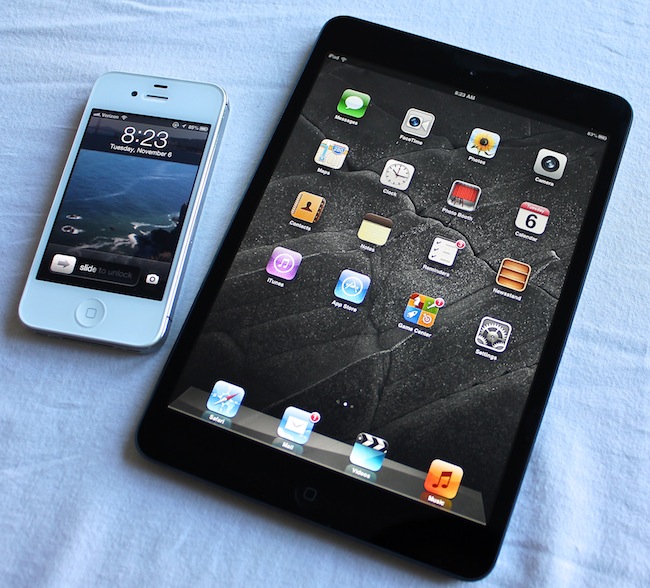
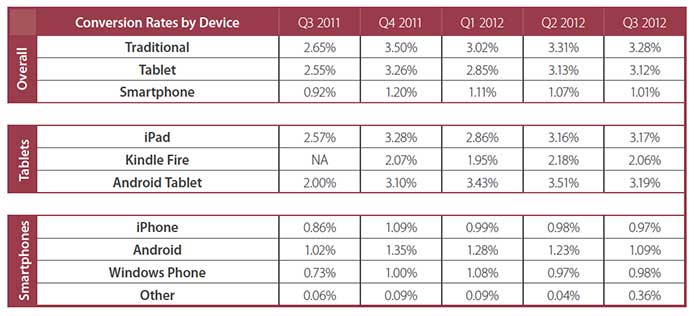
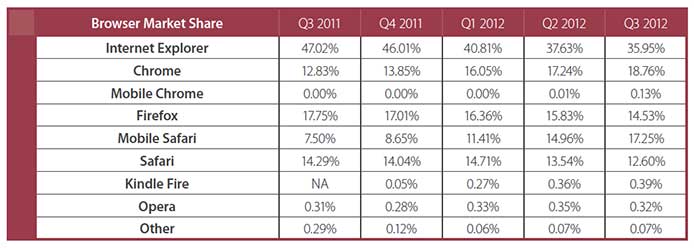







-m.jpg)






 Marko Zivkovic
Marko Zivkovic
 Christine McKee
Christine McKee
 Andrew Orr
Andrew Orr
 Andrew O'Hara
Andrew O'Hara
 William Gallagher
William Gallagher

 Mike Wuerthele
Mike Wuerthele
 Bon Adamson
Bon Adamson
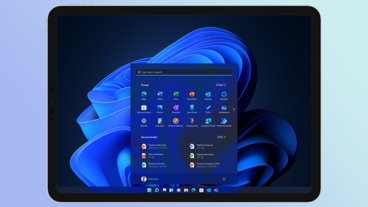
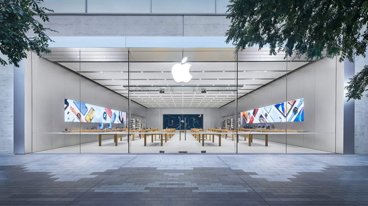


-m.jpg)



27 Comments
Love that wallpaper on the mini in the story photo.
Website design? How about making an app for your store.
Website design? How about making an app for your store.
1- App means you pay 30% to Apple on digital goods, right?
2- So the Web is dead, the open world is gone, Microsoft won through it's Apple investment instead of Internet Explorer?
1- App means you pay 30% to Apple on digital goods, right?
2- So the Web is dead, the open world is gone, Microsoft won through it's Apple investment instead of Internet Explorer?
You're right, apps aren't really suited to stores due to Apple's cut, but perhaps they are better for most things. So the web will survive but become mostly store fronts?
p.s. I think MS sold their Apple shares some time ago.
[quote name="lightknight" url="/t/154623/apples-ipad-driving-e-commerce-as-market-shifts-from-desktop-based-purchases#post_2237282"]1- App means you pay 30% to Apple on digital goods, right? 2- So the Web is dead, the open world is gone, Microsoft won through it's Apple investment instead of Internet Explorer? [/quote] This 30% whining gets really old. Aplpe provides a one-stop shop that millions of users can access, handles distribution, updates, credit card services, etc. That 30% is a great deal compared to a developer doing all that on their own and only having access to a minuscule - almost insignificant - number of users. So get off your cheapskate high horse okay? You want to go to to a real market and make major money and not pay a % fee, go to Android. Oh wait, no one makes money on it. Hmm.. Go to Windows8. Oh wait, they demands % cut too... So what are you crying about??